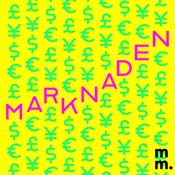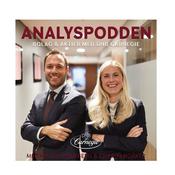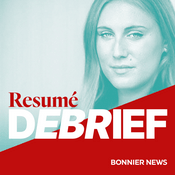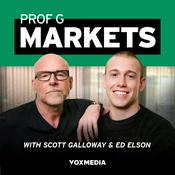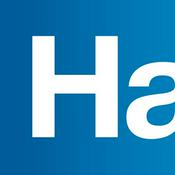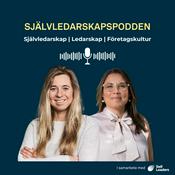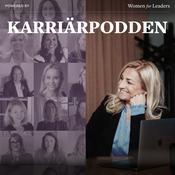356 avsnitt
- Diet TBPN delivers the best of today’s TBPN episode in 30 minutes. TBPN is a live tech talk show hosted by John Coogan and Jordi Hays, streaming weekdays 11–2 PT on X and YouTube, with each episode posted to podcast platforms right after.
Described by The New York Times as “Silicon Valley’s newest obsession,” the show has recently featured Mark Zuckerberg, Sam Altman, Mark Cuban, and Satya Nadella.
TBPN.com is made possible by:
Ramp - https://Ramp.com
AppLovin - https://axon.ai
Cognition - https://cognition.ai
Console - https://console.com
CrowdStrike - https://crowdstrike.com
ElevenLabs - https://elevenlabs.io
Figma - https://figma.com
Fin - https://fin.ai
Gemini - https://gemini.google.com
Graphite - https://graphite.com
Gusto - https://gusto.com/tbpn
Labelbox - https://labelbox.com
Lambda - https://lambda.ai
Linear - https://linear.app
MongoDB - https://mongodb.com
NYSE - https://nyse.com
Okta - https://www.okta.com
Phantom - https://phantom.com/cash
Plaid - https://plaid.com
Public - https://public.com
Railway - https://railway.com
Ramp - https://ramp.com
Restream - https://restream.io
Sentry - https://sentry.io
Shopify - https://shopify.com
Turbopuffer - https://turbopuffer.com
Vanta - https://vanta.com
Vibe - https://vibe.co
Sentry - https://sentry.io
Cisco - https://www.ciscoaisummit.com/ai-virtual-summit.html
Follow TBPN:
https://TBPN.com
https://x.com/tbpn
https://open.spotify.com/show/2L6WMqY3GUPCGBD0dX6p00?si=674252d53acf4231
https://podcasts.apple.com/us/podcast/technology-brothers/id1772360235
https://www.youtube.com/@TBPNLive Clawd Maxxing, ChatGPT Ads Breakdown, China's Top General Accused of Treason | George Kurtz, Joseph Lubin, Kurt Terrani, Christian Keil, Lan Xuezhao, Victor Riparbelli
2026-1-26 | 2 h 57 min.Sign up for TBPN’s daily newsletter at TBPN.com
(00:30) - Clawdbot: AI Enters the Napster Era
(31:55) - Timeline Reactions
(45:35) - George Kurtz, co-founder and CEO of CrowdStrike, is a prominent figure in cybersecurity and an accomplished endurance racer. In the conversation, he discusses his recent victory at the 24 Hours of Daytona, highlighting the team's perseverance after a challenging start, the strategic approach to endurance racing, and the personal fulfillment he derives from the sport. Kurtz also touches on the importance of physical and mental preparation for such demanding events and shares insights into his journey from cybersecurity entrepreneur to competitive racing driver.
(01:01:15) - ChatGPT Ads Breakdown
(01:15:00) - Timeline Reactions
(01:37:43) - Joseph Lubin, a Canadian-American entrepreneur and technologist, co-founded Ethereum and founded ConsenSys, a blockchain venture studio. In the conversation, he discusses the end of a financial super cycle, the potential of decentralized technologies like Ethereum to reshape the global economy, and the importance of integrating traditional finance with decentralized finance to foster innovation and growth.
(02:03:22) - Kurt Terrani, CEO of Standard Nuclear, discusses his company's role in producing advanced nuclear fuels, particularly TRISO fuel, essential for the operation of emerging advanced reactors. He highlights the critical need for a reliable fuel supply to meet the growing energy demands across sectors like defense, space exploration, and AI, emphasizing that reactors cannot function without proper fuel. Terrani also notes the company's strategic location in Oak Ridge, Tennessee, which provides access to a skilled workforce and necessary infrastructure for nuclear fuel fabrication.
(02:15:14) - Christian Keil, formerly Vice President of External Relations at Astranis, has transitioned to a new role at Andreessen Horowitz. In his recent conversation, he reflects on his journey from Minnesota to San Francisco, his growth from an individual contributor to a VP at Astranis, and his insights into the evolving satellite internet market, emphasizing the need for multiple companies to build a comprehensive space-based internet infrastructure. He also discusses his plans at Andreessen Horowitz, focusing on aerospace, defense, and energy sectors, and his approach to engaging with founders and exploring new investment opportunities.
(02:27:50) - Lan Xuezhao, founder of Basis Set Ventures, discusses the firm's early focus on AI investments since 2017 and the recent raise of a $250 million fourth fund. She highlights the importance of investing in AI infrastructure and applications, emphasizing the need for systems to become more intelligent and human-like. Xuezhao also expresses enthusiasm for advancements like Cloudbot, while acknowledging concerns about security issues, and shares her vision for automating various aspects of the economy to allow humans to engage in more fulfilling activities.
(02:40:51) - Victor Riparbelli, CEO and co-founder of Synthesia, a leading AI video generation platform, discusses the company's recent Series E funding round, highlighting significant growth and the high quality of revenue from substantial deployments, including multimillion-dollar contracts with 90% of Fortune 100 companies. He emphasizes the steady and compounding nature of this growth, noting that the majority of Synthesia's use cases involve complex product explanations, both internally and externally, particularly in industries like insurance, pharmaceuticals, and software. Riparbelli also introduces new products at the intersection of agentic experiences and video, such as interactive corporate training videos that engage users in role-playing scenarios to enhance learning and retention.
TBPN.com is made possible by:
Ramp - https://Ramp.com
AppLovin - https://axon.ai
Cognition - https://cognition.ai
Console - https://console.com
CrowdStrike - https://crowdstrike.com
ElevenLabs - https://elevenlabs.io
Figma - https://figma.com
Fin - https://fin.ai
Gemini - https://gemini.google.com
Graphite - https://graphite.com
Gusto - https://gusto.com/tbpn
Labelbox - https://labelbox.com
Lambda - https://lambda.ai
Linear - https://linear.app
MongoDB - https://mongodb.com
NYSE - https://nyse.com
Phantom - https://phantom.com/cash
Plaid - https://plaid.com
Public - https://public.com
Railway - https://railway.com
Restream - https://restream.io
Shopify - https://shopify.com
Turbopuffer - https://turbopuffer.com
Vanta - https://vanta.com
Vibe - https://vibe.co
Sentry - https://sentry.io
Cisco - https://www.ciscoaisummit.com/ai-virtual-summit.html
Okta - https://www.okta.com
Follow TBPN:
https://TBPN.com
https://x.com/tbpn
https://open.spotify.com/show/2L6WMqY3GUPCGBD0dX6p00?si=674252d53acf4231
https://podcasts.apple.com/us/podcast/technology-brothers/id1772360235
https://www.youtube.com/@TBPNLiveChina’s acquisition spree, TikTok reaches U.S survival deal, Tech Giants hit by spying | Diet TBPN
2026-1-24 | 31 min.Diet TBPN delivers the best of today’s TBPN episode in 30 minutes. TBPN is a live tech talk show hosted by John Coogan and Jordi Hays, streaming weekdays 11–2 PT on X and YouTube, with each episode posted to podcast platforms right after.
Described by The New York Times as “Silicon Valley’s newest obsession,” the show has recently featured Mark Zuckerberg, Sam Altman, Mark Cuban, and Satya Nadella.
TBPN.com is made possible by:
Ramp - https://Ramp.com
AppLovin - https://axon.ai
Cognition - https://cognition.ai
Console - https://console.com
CrowdStrike - https://crowdstrike.com
ElevenLabs - https://elevenlabs.io
Figma - https://figma.com
Fin - https://fin.ai
Gemini - https://gemini.google.com
Graphite - https://graphite.com
Gusto - https://gusto.com/tbpn
Labelbox - https://labelbox.com
Lambda - https://lambda.ai
Linear - https://linear.app
MongoDB - https://mongodb.com
NYSE - https://nyse.com
Okta - https://www.okta.com
Phantom - https://phantom.com/cash
Plaid - https://plaid.com
Public - https://public.com
Railway - https://railway.com
Ramp - https://ramp.com
Restream - https://restream.io
Sentry - https://sentry.io
Shopify - https://shopify.com
Turbopuffer - https://turbopuffer.com
Vanta - https://vanta.com
Vibe - https://vibe.co
Sentry - https://sentry.io
Cisco - https://www.ciscoaisummit.com/ai-virtual-summit.html
Follow TBPN:
https://TBPN.com
https://x.com/tbpn
https://open.spotify.com/show/2L6WMqY3GUPCGBD0dX6p00?si=674252d53acf4231
https://podcasts.apple.com/us/podcast/technology-brothers/id1772360235
https://www.youtube.com/@TBPNLiveChina's Acquisition Spree, TikTok's Survival Deal, Intel Slips | Tuhin Srivastava, Bryce Strauss, Max Spero, Russ d'Sa
2026-1-23 | 2 h 46 min.Sign up for TBPN’s daily newsletter at TBPN.com
(02:08) - What China Actually Imports from the West
(11:58) - Sony and TCL Form Alliance
(17:08) - 𝕏 Timeline Reactions
(21:19) - TikTok Deal
(31:41) - Tech Giants Hit by Spying
(34:36) - 𝕏 Timeline Reactions
(43:02) - Google and Epic Games Settle
(46:21) - Crypto Prepares for Quantum Threats
(49:20) - 𝕏 Timeline Reactions
(01:00:34) - Tuhin Srivastava is the CEO and co-founder of Baseten, an AI inference company that has experienced significant growth, raising $150 million at a $2.15 billion valuation. He discusses the rapid adoption of AI models by enterprises, emphasizing the importance of infrastructure to support scalable and efficient AI applications. Srivastava also highlights the challenges enterprises face in deploying custom models and the role of companies like Baseten in facilitating this transition.
(01:17:17) - Bryce Strauss, co-founder of Nominal, discusses the company's partnership with Pratt Miller Motorsports, emphasizing the integration of Nominal's engineering software into the team's race operations. He highlights the challenges of endurance racing, such as managing fuel consumption and data analysis, and explains how Nominal's platform aids in optimizing performance through real-time telemetry and decision-making. Strauss also notes the broader applications of their technology across industries like aerospace and defense, underscoring its versatility in handling complex engineering problems.
(01:30:48) - Max Spero, co-founder and CEO of Pangram Labs, discusses the company's mission to detect AI-generated content and its rapid growth since launching a Twitter bot in late 2025. He highlights partnerships with platforms like Quora to maintain content authenticity and addresses challenges posed by AI-generated misinformation, emphasizing the importance of accurate detection tools to preserve the integrity of online information.
(01:50:59) - Russ d'Sa, CEO of LiveKit, discusses the company's recent achievement of becoming a unicorn with a $100 million Series C funding round, valuing the company at $1 billion. He attributes this success to the rapid growth of voice AI and LiveKit's pivotal collaboration with OpenAI on ChatGPT's voice mode, which transformed their focus from video conferencing infrastructure to AI. D'sa emphasizes the importance of user experience in voice AI, noting that personal assistants should exhibit human-like empathy, while B2B applications prioritize reliability and efficiency.
(02:07:39) - WSJ Mansion Section
(02:18:55) - 𝕏 Timeline Reactions
TBPN.com is made possible by:
Ramp - https://Ramp.com
AppLovin - https://axon.ai
Cognition - https://cognition.ai
Console - https://console.com
CrowdStrike - https://crowdstrike.com
ElevenLabs - https://elevenlabs.io
Figma - https://figma.com
Fin - https://fin.ai
Gemini - https://gemini.google.com
Graphite - https://graphite.com
Gusto - https://gusto.com/tbpn
Labelbox - https://labelbox.com
Lambda - https://lambda.ai
Linear - https://linear.app
MongoDB - https://mongodb.com
NYSE - https://nyse.com
Phantom - https://phantom.com/cash
Plaid - https://plaid.com
Public - https://public.com
Railway - https://railway.com
Restream - https://restream.io
Shopify - https://shopify.com
Turbopuffer - https://turbopuffer.com
Vanta - https://vanta.com
Vibe - https://vibe.co
Sentry - https://sentry.io
Cisco - https://www.ciscoaisummit.com/ai-virtual-summit.html
Okta - https://www.okta.com
Follow TBPN:
https://TBPN.com
https://x.com/tbpn
https://open.spotify.com/show/2L6WMqY3GUPCGBD0dX6p00?si=674252d53acf4231
https://podcasts.apple.com/us/podcast/technology-brothers/id1772360235
https://www.youtube.com/@TBPNLiveCapital One Acquires Brex for $5B, Davos’s $500M business, Apple’s Siri rebuild | Diet TBPN
2026-1-23 | 30 min.Diet TBPN delivers the best of today’s TBPN episode in 30 minutes. TBPN is a live tech talk show hosted by John Coogan and Jordi Hays, streaming weekdays 11–2 PT on X and YouTube, with each episode posted to podcast platforms right after.
Described by The New York Times as “Silicon Valley’s newest obsession,” the show has recently featured Mark Zuckerberg, Sam Altman, Mark Cuban, and Satya Nadella.
TBPN.com is made possible by:
Ramp - https://Ramp.com
AppLovin - https://axon.ai
Cognition - https://cognition.ai
Console - https://console.com
CrowdStrike - https://crowdstrike.com
ElevenLabs - https://elevenlabs.io
Figma - https://figma.com
Fin - https://fin.ai
Gemini - https://gemini.google.com
Graphite - https://graphite.com
Gusto - https://gusto.com/tbpn
Labelbox - https://labelbox.com
Lambda - https://lambda.ai
Linear - https://linear.app
MongoDB - https://mongodb.com
NYSE - https://nyse.com
Okta - https://www.okta.com
Phantom - https://phantom.com/cash
Plaid - https://plaid.com
Public - https://public.com
Railway - https://railway.com
Ramp - https://ramp.com
Restream - https://restream.io
Sentry - https://sentry.io
Shopify - https://shopify.com
Turbopuffer - https://turbopuffer.com
Vanta - https://vanta.com
Vibe - https://vibe.co
Sentry - https://sentry.io
Cisco - https://www.ciscoaisummit.com/ai-virtual-summit.html
Follow TBPN:
https://TBPN.com
https://x.com/tbpn
https://open.spotify.com/show/2L6WMqY3GUPCGBD0dX6p00?si=674252d53acf4231
https://podcasts.apple.com/us/podcast/technology-brothers/id1772360235
https://www.youtube.com/@TBPNLive
Fler podcasts i Näringsliv
Trendiga poddar i Näringsliv
Om TBPN
TBPN is a live tech talk show hosted by John Coogan and Jordi Hays, streaming weekdays from 11–2 PT on X and YouTube, with full episodes posted to Spotify immediately after airing.
Described by The New York Times as “Silicon Valley’s newest obsession,” TBPN has interviewed Mark Zuckerberg, Sam Altman, Mark Cuban, and Satya Nadella. Diet TBPN delivers the best moments from each episode in under 30 minutes.
Podcast-webbplatsLyssna på TBPN, Börsens Finest och många andra poddar från världens alla hörn med radio.se-appen

Hämta den kostnadsfria radio.se-appen
- Bokmärk stationer och podcasts
- Strömma via Wi-Fi eller Bluetooth
- Stödjer Carplay & Android Auto
- Många andra appfunktioner
Hämta den kostnadsfria radio.se-appen
- Bokmärk stationer och podcasts
- Strömma via Wi-Fi eller Bluetooth
- Stödjer Carplay & Android Auto
- Många andra appfunktioner


TBPN
Skanna koden,
ladda ner appen,
börja lyssna.
ladda ner appen,
börja lyssna.




